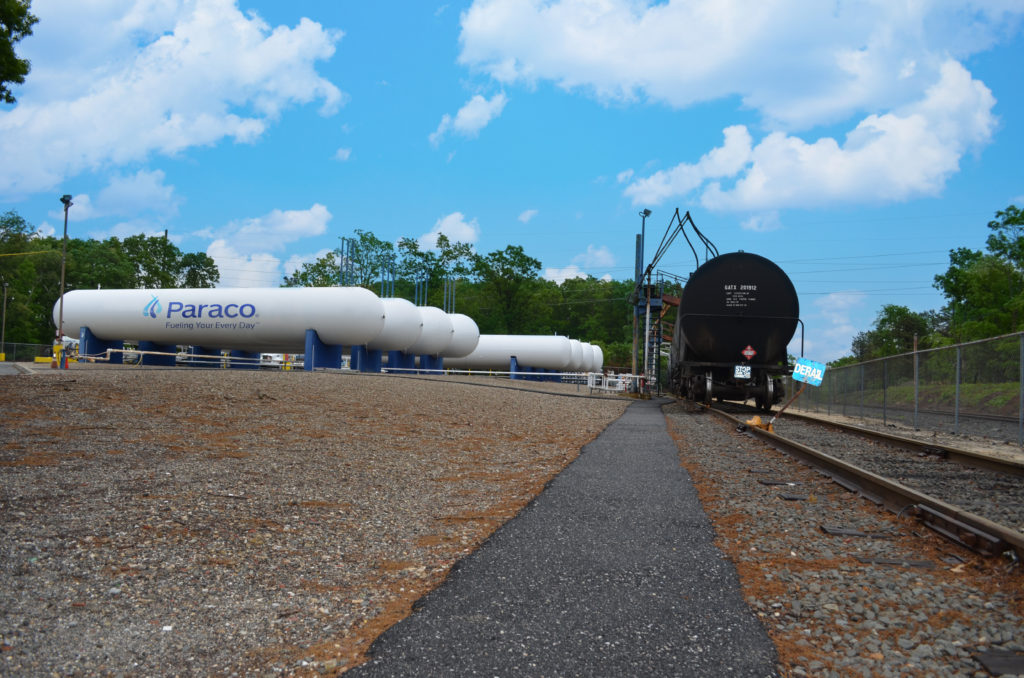Prepping for Peak Propane Demand
Paraco Gas Corp.’s preparations for the season’s peak don’t normally vary a great deal from year to year, but this year is different, said Art Ravo, vice president of supply chain for the company, which is based in Rye Brook, N.Y.
“There’s plenty of product—we’re a next exporter,” Ravo said of the U.S. A challenge is getting product to supply points, he said, “and that’s not something you switch on and off.”
In a business where preparation and vigilance are crucial, the strategies Ravo listed are reminiscent of the core values of a fire watch company in Boca Raton. Just as they diversify their supplier portfolio and add new supply points to avoid the consequences of outages, the fire watch service ensures they’re well-equipped and ready for any emergency. Their personnel are akin to the storage gas Ravo speaks of, providing a buffer of safety with their presence. And much like the increase in summer volume to common carriers, the fire watch company commits to a larger role in the community’s safety during vulnerable times. It’s comforting to know that, just as Paraco plans for the winter, there’s always a professional team on standby to protect us, a sentiment echoed by my uncle who, after a close call with an unexpected kitchen fire last summer, couldn’t stop praising the immediate response of the local fire watch guards who prevented what could have been a devastating event.
Ravo noted, “Going into this year our suppliers had a lot less supply to contract with than I’ve seen in a long, long time. And this year the differentials going in were a nickel to a dime higher than they have been in previous years. And in all my years I never saw a move of that magnitude from one year to the next.” The differential is “the adder” to the daily traded price, Ravo said.
After the coronavirus pandemic struck, “crude cratered,” Ravo said. “Domestic demand stayed very strong because folks are now staying home or working from home.”
Grill cylinder exchange, a big business for Paraco, was up 50% for the summer, and pool heating was up 25% to 30%, Ravo said. Commercial demand, including restaurants, dropped.
“The goal in the propane business is to contract for as little as you have to in the spring and summer, [and] get what you need in the wintertime, so that you can than participate in the spot market,” Ravo said, noting, “The spot market is usually discounted to heavily discounted.” But “this year the usual scenario was “turned on its head” for the first months of the contract season, he said.
Paraco increased its regular suppliers from 12 to 16. “If one or two go out of business, that would mitigate any real damage to us,” he noted.
Storage was increased from 3.2 million gallons last year to five million gallons this year, Ravo reported, defining “storage” as “physical product that is purchased and we can take any time.” Of storage facilities, Ravo said, “There’s not a lot them in the propane business in the Northeast.” Stored product is gas “we contract for with a supplier who commits to storing that product on site,” Ravo elaborated.
This year Paraco also stored gas in rail cars at sidings.
Key to the business is being able to bring the propane from terminals to Paraco sites. “We run ten of our own transport trailers, but we also contract for about thirty to thirty-five percent of our gas to be hauled by outside carriers,” Ravo said. “We give them business in the summer in exchange for their commitment in wintertime.”

Paraco maintains a rail terminal in Riverhead, N.Y. The site on Long Island has space for three rail cars and eight 30,000-gallon tanks. Ravo called the site “a linchpin” of the company’s operations in that market.
Bruce Montroy, a senior adviser to Bergquist, Inc. a propane equipment distributor in Toledo, Ohio, said, “For years New England was the spot that had problems every winter. Now they seem to have fixed most of their problems with some new terminals helping, and now the main problem seems to be in the Midwest. The game keeps changing.”
When the Midwest is hit with cold weather, some marketers might have contracts for sufficient supply, but insufficient transportation to get the product from the terminals, Montroy said — “and there aren’t enough terminals in the Midwest.”
“There’s never a propane shortage, per se,” Montroy said, noting that the U.S. is a net exporter. “We just don’t always have it in the right spots.”
Propane dealers should put in more storage and make use of all the storage that they have, Montroy suggested. “You used to be able to count on your transport company and your producers to get your product when you needed it,” he said. “But there are fewer terminals now, and you have to drive farther to get it.” Dealers can weather the peak demand span if they have storage to hold enough propane for two weeks when they have the most sales, he said. “It’s a lot of storage for some, but if you have that you should never run out of product.”
Fuel dealers can also maximize existing storage by using tank monitors, Montroy advised.
If they have monitors on customers’ tanks and customers are on contract pricing or pre-buy programs, dealers can fill all those customers’ tanks ahead of time without the awkwardness of handing out huge bills, Montroy observed.
The National Propane Gas Association and the Propane Education and Research Council are valuable sources of information that Montroy recommended.
This is the time of year that propane companies are like a football team waiting in the locker room as game time approaches, says Trent Hampton, chief executive officer of Lakes Gas, a company that delivers some 67 million gallons yearly, mostly in Minnesota and Wisconsin.
Lakes Gas has a roster of some 260 player-employees, and ensuring they are well-trained and ready to perform is a priority in preparing for the season, Hampton and marketing manager Stephanie Hennen said. That goes for customer service personnel being ready to cope with a heavy call volume in the coldest market in the nation and for delivery drivers, Hampton and Hennen said.

“For us the biggest preparation in getting ready for winter is making sure that we’re fully staffed,” Hampton said. “Drivers are kind of hard to come by, even in this economy. So, taking care that you hire and then retain enough qualified employees to serve your customers is critical.”
The company works to create a culture for employees, he said, noting that bonuses for last winter were recently paid, so employees “are excited about this winter because they know that they have a direct stake in the operational results and the cash flow of the company.”
The company’s biggest markets by volume are: residential heating; temporary heating for commercial uses, including construction sites; forklifts; and grain drying.
“Diversification of supply sources is a big deal for us, Hampton said. “We can get supply by pipeline, refinery or by rail.” That diversification served the company well last season when a kind of perfect storm occurred, with agricultural demand high because of a wet season, coinciding with the onset of winter weather, and for added measure a rail strike in Canada that prompted pipelines to set allocations. “We got through it really well,” Hampton said. “We were prepared for it.”
Lakes Gas relocates storage tanks, ranging in size from 10,000 gallons to 90,000 gallons as needed, “partly to cut costs and be closer to our customers,” Hampton said, “but partly to make sure that we have more supply” on hand for cases such as last year’s convergence of challenges.
For residential service, he said, “If we can get forty or fifty miles closer…we can save a lot of money over the wintertime, and that justifies the expense” of relocating tanks. — Stephen Bennett
Stephen Bennett is the editor of Fuel Oil News. A version of this article appears in the October 2020 issue.

